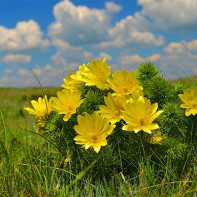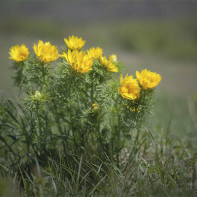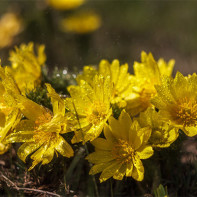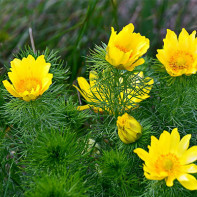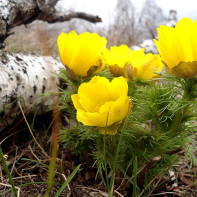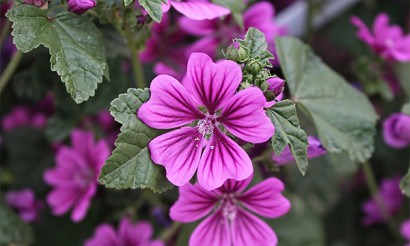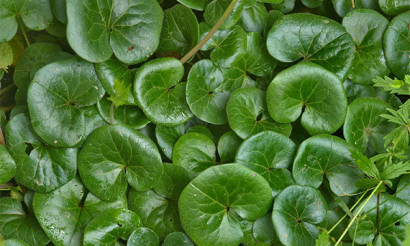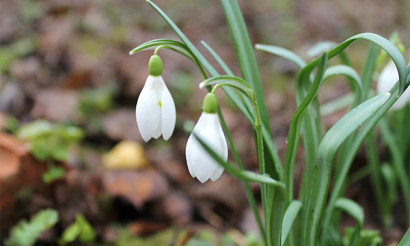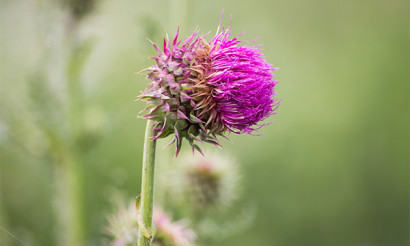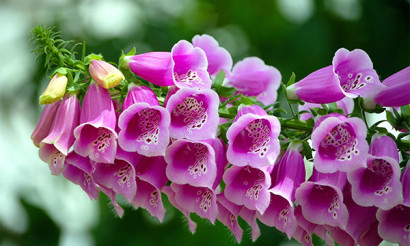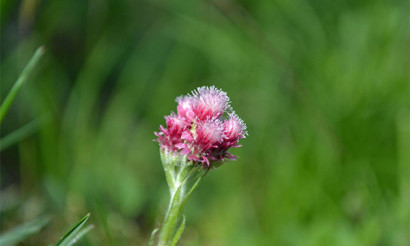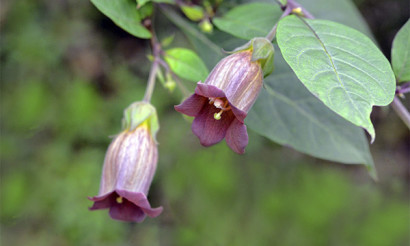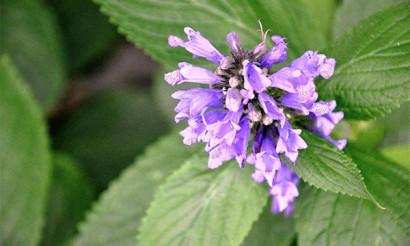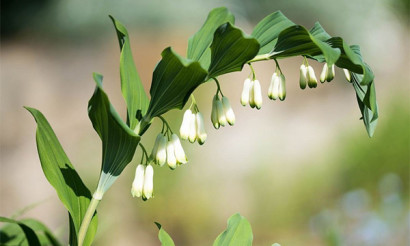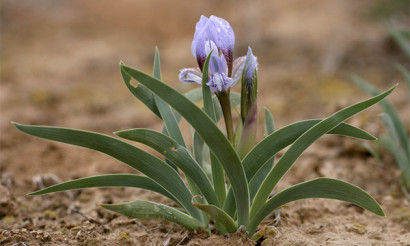Adonis: medicinal properties and contraindications
Adonis is a plant that belongs to the Buttercup family. It can be found in regions with temperate climates, as it does not tolerate heat. There is a legend according to which Adonis (king of Crete) died while hunting and doused the flowers with blood. However, red flowers are rare, most often they are deep yellow. The flower shoots can be either simple or branched. The foliage is narrow, pinnate. The diameter of the flowers rarely exceeds 6 cm. Depending on the species, the shape of the petals and their number may also vary.
- Chemical composition
- How it looks and where it grows
- Types
- Gathering and storage
- Therapeutic properties of spring adonis
- Adonis in folk medicine
- With thyroid problems
- With bronchospasm
- In disorders of the nervous system
- In violation of liver function
- At heart failure
- For insomnia and anxiety
- At epilepsy
- At constipation
- At cramps
- Kidney disease
- Types of medicinal compositions
- Infusion
- Infusion
- Decoction
- Tea
- Growing adonis in the garden
- Contraindications for use
Gardeners became interested in this plant at the end of the XVII century. Then it began to appear in gardens and parks.
Chemical composition
Adonis contains a large number of various elements and substances that have different effects on the body. Do not forget that any part of the flower contains substances that are poisonous to humans, so you need to handle Adonis with care. Such constituents have been found in it:
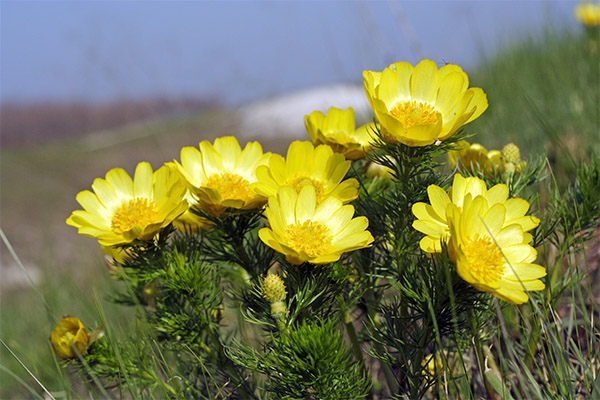
- Tannins. They are widespread in plants and have significant effects on the body. First, tannins can fight diarrhea, dysbacteriosis and other intestinal diseases. Secondly, they have antimicrobial and anti-inflammatory effects.
- Ascorbic acid. This is one of the most important organic substances for the body. It helps to strengthen the immune system, restores strength and normalizes metabolic processes.
- Choline (vitamin B). Another essential element for the body, which ensures the normal functioning of the nervous system. In addition, it cleanses blood vessels, regulates the liver and pancreas, and improves memory.
- Flavonoids. They have antioxidant and anti-inflammatory effects, in addition, have a positive effect on the entire cardiovascular system. Flavonoids prevent the development of chronic heart disease, reduce blood cholesterol levels and prevent the formation of blood clots.
- Coumarins. In large quantities they are dangerous. Coumarins are found in many foods, and exceeding the recommended dosage can lead to serious consequences, up to and including respiratory failure. Nevertheless, in moderate quantities they have a positive effect on blood health and make the walls of blood vessels stronger.
- Organic acids. Most often they are rich in fruits. Acids have a pronounced antipyretic, immunostimulating, antibacterial, choleretic and anti-inflammatory effect. Adonis includes acetic, formic and citric acids.
- Carotene. Thanks to carotene, vitamin A is formed in the liver, which plays an important role in keeping the body healthy. Everyone knows about the benefits of vitamin A for vision, but few people know that it also promotes tissue growth by accelerating wound healing, and improves the immune system. Carotene is also an antioxidant.
- Glycosides (cardenolides). Stimulate the heart and often become the basis of medicines.
- Phytosterols. These are the plant analog of cholesterols that improve the body's coronary system. Phytosterols also help to eliminate cholesterol and strengthen the immune system. In some cases, they can lower blood sugar and stop inflammation.
What it looks like and where it grows
Species and habitat depend on the species. Some have adapted to live in Siberia, while others grow in the south. However, they share some common features. For example, the leaves are all thin, split and oblong, somewhat reminiscent of dill. The height of the plants does not exceed 60-70 cm, and the flowers themselves are small. Adonis comes in white, yellow and red.
Types
There are a large number of species of adonis. The most common are considered:
- Summer. This species is common in western Europe, central Asia, southern Russia and the Caucasus. The plant does not exceed 50 cm in height, has straight stems. The leaves are thin and oblong and the flowers are solitary, not exceeding 3 cm in diameter. It is a unique red flower with a dark spot closer to the base. It begins to bloom in May.
- Amur. The name speaks for itself - the flower is common in the East, particularly in Japan. Most often grows in forest clearings, but you can also find it on the sea coast. The leaves are long, pinnate and do not exceed 30-40 cm in height. The vegetation ends around July. It is very capricious to air temperature, at the slightest coldness the flowers close.
- Fluffy. It grows in Kazakhstan and some regions of Siberia. It is found in the steppes, usually near rocks or stones. Its stems are solitary and fluffy, while its leaves are like those of the other species.
- Vernal. Widespread in the European part of Russia, Ukraine and Belarus. It can even be found in some regions of Siberia. It mainly grows in the steppes and forests. In western Europe this species is rare and has almost disappeared in Germany. The flower is deep yellow, the diameter does not exceed 8 cm. Adonis vernalis grows up to 30-40 cm in height.
- Volga. Grows to 30-35 cm in height. The flower stems are straight, divided about halfway up. The leaves are divided into oblong lobes, the flowers have a pale yellow hue and do not exceed 5 cm in diameter.
- Siberian. Can reach a height of 60 cm. The plant itself has several stems, converging at the base. The leaves are slender, divided, and the flowers are deep yellow, growing up to 6 cm in diameter. Starts blooming in late spring and early summer. Widespread in Siberia along the Irkut, Lena and Belaya rivers. Most often found in forest clearings.
- Turkestan. A plant with curly stems that can reach a height of 70 cm. The leaves are lanceolate, pointed at the ends and divided. They have a bluish tint on the outside and a yellow-orange color on the inside. The flowers are no larger than 3 cm in diameter, and the petals are elongated. Widely distributed in Central Asia.
Gathering and storage
Adonis spring is used for medicinal purposes. Both leaves and flowers can be used for treatment. However, you should not forget that any plant is poisonous as a whole, excessive use can cause health problems.
Adonis, which grows in the steppe, is considered the most effective for treatment. This is due to the activity of the plant. Also for medicinal purposes it is necessary to collect the raw material from large and powerful bushes.
It is important to cut the plant correctly so as not to damage the roots, 10-15 cm above the ground and have time to collect the raw material at the end of flowering before the flowers begin to fall. During this period it has a high biological activity. It is important to collect it away from roads and other artificial structures in sunny weather.
Next, it is important to dry the plant in a timely manner. This can be done with the help of special dryers at a temperature of no more than 60 degrees or in the attic. To do this, spread a thick cloth or paper, and put the adonis in an even layer. The attic must have a window so that there is access to fresh air, and moderate humidity. The correct drying of the raw material is indicated by its color. The flowers should remain yellow, and the stems should be greenish. If the weather is good, you can dry the plant outside under a canopy.
You can store the medicine in a glass container or cloth bag. The dried plant can be stored for no more than 1 year. Because of its toxicity, you must be careful and not store adonis next to products and other herbs.
Medicinal properties of adonis spring
In many pharmacies you can find medicines, the main component of which is this plant. Pharmaceutical companies around the world use it to treat heart problems. In folk medicine, the benefits of adonis have been known since ancient times, but its use is associated with the risk of poisoning, so you need to exercise caution.
Since ancient times, it was used to treat dropsy. Now adonis is one of the important components of drugs for people with problems of the cardiovascular system. Mostly medicines based on this plant are used for heart failure or heart neurosis.
Preparations with bromine and adonis are prescribed for insomnia and excessive excitability of the nervous system. It is also prescribed for epilepsy and vegetodystonia.
Adonis is valued because its active ingredients accumulate less in the body. The plant has a mild diuretic effect, so it can cope with congestion. This makes it useful for edema.
In folk medicine, this flower has also found use in the treatment of other diseases. Decoctions and infusions are used for shortness of breath, cramps, nephritis and infectious diseases. Lotions of adonis infusion can relieve inflammation in the muscles. This flower is also a component of herbal gatherings for the kidneys.
Adonis in folk medicine
Adonis has received a wider application in folk medicine. Traditional medicine uses it as a component for heart medications. In folk medicine, tinctures and decoctions are used to treat many other diseases. It is used for kidney disease, inflammatory processes in the body, bronchitis, dropsy, etc.
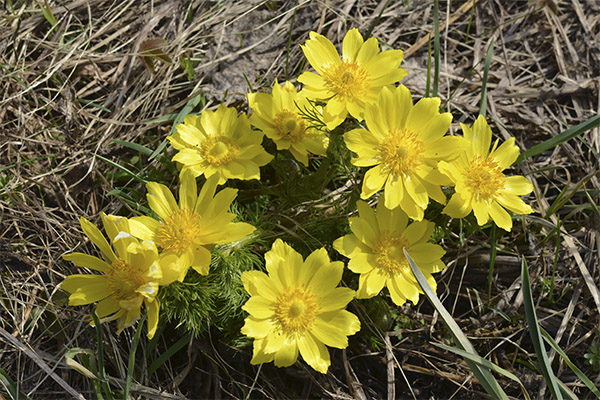
In problems with the thyroid gland.
Such a collection is an effective remedy for goiter, for its preparation will require:
- adonis;
- violet;
- pharmacy chamomile;
- oregano;
- mint;
- calendula;
- budra.
It is necessary to grind all herbs thoroughly, then mix them in equal proportions. Then take 7 grams of mixed herbs and pour a glass of warm water over them. Insist for 24 hours, then bring to a boil and strain. Use refrigerated 1/3 cup after a meal.
With bronchospasm
To treat this ailment, you will also need a collection, but you need the seeds of adonis, not its green part or flower. The collection is made from the seeds of adonis (10 g), chamomile (20 g), thyme (20 g), succession (50 g) and violet (10 g). All ingredients are crushed and thoroughly mixed. Then take 1 tsp. collection and pour a glass of boiling water, then cover and insist for 20-30 minutes. Strain the finished medicine and drink a glass throughout the day. Leave it for the next day is not recommended, because the infusion will quickly lose its therapeutic properties. Ready infusion has a not very pleasant taste, so you can add sugar to it, but better honey, from this will increase the effectiveness of the medicine. Drink the infusion in between meals, as well as before going to bed.
With bronchospasm in children, you can also use this infusion, but very carefully. Even a minimal excess of the daily dose can cause poisoning. Children under 6 years of age are not recommended to use the medicine in any dosage. From 6 to 9 years, the daily rate is 0.1-0.2 g, from 9 to 14 years - 0.3 g, at 16 and over - up to 0.5 g.
In disorders of the nervous system
In case of increased excitability of the nervous system, it is recommended to use a decoction. To prepare it you will need 1 tsp. chopped herb and a glass of boiling water. Pour boiling water over the herb, then place in a water bath for 10 minutes. After that, insist on the remedy for 30 minutes. Take 1 tsp. spoon no more than 4-5 times a day. Children can take this broth up to 2 times a day for 1/2 tsp. spoon.
To treat other disorders of the nervous system will require a collection of adonis, nettle, celandine, rose hips, St. John's wort, melissa, motherwort and rose hips. All ingredients are crushed and mixed in equal proportions, then mix thoroughly. Then take 6-8 grams of the collection and pour a glass of boiling water. Leave to infuse for a few hours, then strain and drink throughout the day for 1/4 cup. The use of infusion does not depend on the intake of food.
When impaired liver function
This recipe improves liver function, helps to fight swelling and normalizes blood circulation. Use the plant as part of an herbal collection, which includes the following herbs:
- 20 g of adonis;
- 20 g of celandine;
- 30 g yarrow;
- 30 g field horsetail.
Grind the herbs, then mix together thoroughly. Then separate 15 g of the finished collection and pour 2.5 cups of boiling water. Insist the medication for an hour, then strain, cool and take 1/2 cup twice a day before meals. Since the beneficial properties are quickly lost, you can prepare 2 times less medicinal raw material to consume during the day.
In heart failure
For this purpose, an infusion of adonis with the addition of other herbs that have a positive effect on the heart is used. To prepare the infusion will need adonis, motherwort, melissa, clover, white mistletoe. Take all the ingredients in equal quantities, then grind to a powder. Then mix thoroughly and pour 4 cups of boiling water. Infuse the medicine for at least 4 hours, then strain. Since the ingredients are strongly crushed, strain the infusion through a thick cloth. You can use gauze folded several times. Drink the medicine by 1/4 cup after a meal.
Such a collection normalizes the heart rhythm and has a sedative effect.
When insomnia and increased anxiety.
An infusion based on the herbal collection is used as a sedative. It strengthens the nervous system, preventing the development of its disorders. Infusion is also used for increased anxiety.
To prepare it, you will need adonis, motherwort, willow, melissa, St. John's wort and rose hips. All ingredients are thoroughly ground, stirred and pour 0.5 liters of boiling water. Then cover and leave for 3-4 hours. Strain the finished product, take 1 tbsp. spoon 3-4 times a day. With insomnia, it is desirable to use the infusion before bedtime.
When epilepsy
In folk medicine, adonis is considered one of the most effective means for treating epilepsy. Infusion of the herb is used in this disease. Adonis also acts as a prevention of epilepsy. To prepare the infusion need to take 5-7 grams of grass, crush it, pour a glass of boiling water and cover with a lid. Insist for 30-40 minutes, then drink 1 tbsp. spoon three times a day. The infusion will be more effective if you add to it bromine or codeine.
However, do not abuse the infusion, as it may increase blood pressure and heart rate.
When constipation
Decoction based on the herbal collection with adonis can facilitate the excretion of feces and improve intestinal microflora. For its preparation will need buckthorn (50 g), elderberry flowers (20 g), fennel fruits (20 g), adonis (10 g). Ingredients grind and mix, then 1 tbsp. Pour a spoonful of the collection with a glass of boiling water and leave in a water bath for half an hour. Then strain and consume 100 ml after a meal.
With cramps
Since adonis is considered a cardiac herb, it effectively copes with cramps. An infusion is prepared for this purpose. It takes 1 tbsp. of crushed herb and 300 ml of boiling water. Pour water over the herb, cover and insist in a dark place for 2-3 hours. Then strain and use 1 tbsp. spoon no more than 3 times a day.
Infusion quickly sour, so every day you need to prepare a new medication.
With kidney disease
Decoction based on the collection with adonis has a diuretic, improves kidney function, gets rid of existing edema and prevents the appearance of new ones. The composition of the collection includes adonis (4 g), bearberry (5 g), horsetail (2 g), birch buds (3 g). All ingredients are thoroughly ground, stirred and pour 350 ml of boiling water. Then place on a water bath for 30 minutes. Decoction cool, strain and pour into a glass container with a lid. Take 1 tbsp. spoon at least 5-6 times a day.
Types of medicinal compositions
Adonis is used as a standalone remedy and as a component of gatherings. Each method of preparation of medicinal raw materials has a beneficial effect and is aimed at specific diseases. For example, a decoction has a diuretic, and a tincture fights well with inflammatory processes.
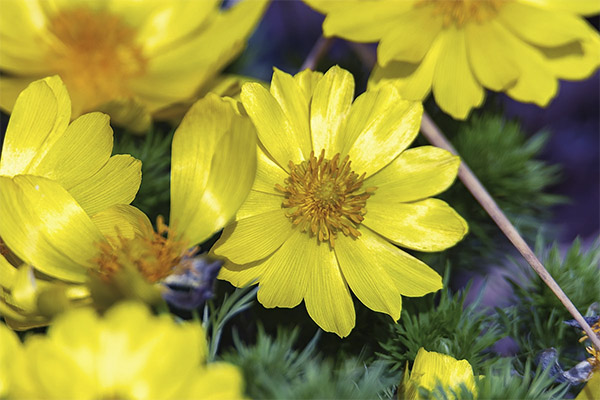
Infusion
Infusion has antiviral, anti-inflammatory and diuretic effects. It can be used for both internal and external use. A compress of adonis infusion can be applied to sore joints and muscles. Its preparation requires 1 tsp crushed herbs in a glass of boiling water. Pour water over the raw material, and then insist for 30-50 minutes. Strain the finished product and take 1 tsp. spoon three times a day. Children are allowed to use it in 5-10 drops. Drink the remedy in chilled form. To use as a compress, you need to soak a rag in the infusion, then wrap it around the sore spot for a short period of time.
Tincture .
Tincture, first of all, is valued for its ability to retain its useful properties for a long time. Preparing it is simple, but you need to remember that it is a long process, so you need to make it in advance. Require 100 g of dry raw materials (leaves and flowers) pour in a glass container 1 liter of vodka or alcohol. The container must be tightly closed. You can pour the herb directly into the vodka bottle. Then seal it tightly and put in a dark place for 20 days. Once every 7 days, take out the bottle and stir the contents. Once the tincture is ready, strain it. It is recommended to store in a glass container, the same bottle can be used for this purpose.
It should be taken in 3-5 drops three times a day. Tincture is a good prevention of viral diseases and relieves inflammation.
Decoction .
Decoction is very simple to prepare. You need to pour 1 tbsp of crushed raw materials with a glass of boiling water. It is recommended to do this in an enamel bowl. Then cover the decoction with a lid and strain after 30-40 minutes. Decoction to cool and take 1 tbsp. spoon no more than 3 times a day.
You can prepare a more concentrated decoction. This will require 1 tbsp. raw material and 2 cups of liquid. Pour the herb with water, then bring to a boil and keep on low heat for 15-20 minutes. After that, insist for half an hour and strain.
Note! Decoction has a diuretic and anti-inflammatory effect.
Decoction can be drunk before and after meals. Decoction is potent, so usually enough 10-14 days treatment course. In some cases, you can extend it, but it is advisable to consult a doctor to avoid negative consequences.
The decoction can be stored in the refrigerator for no longer than 48 hours.
Tea
Tea will help get rid of fevers, runny nose and other unpleasant symptoms of viral diseases. It is useful to drink in winter, in the midst of a flu epidemic, because it not only fights the symptoms, but also prevents the emergence of viral diseases.
To prepare the tea, you need to crush 1 tbsp. raw material, then pour 2 cups of boiling water. Leave it to infuse until it cools, then strain.
Despite the name, you can not drink it by the cup, like regular tea. It is recommended to consume 1 tbsp. for several hours, depending on the condition. You can sweeten the finished drink with honey, so it becomes even more useful.
Growing adonis in the garden
Finding medicinal raw materials is not always easy. Sometimes people are faced with the fact that it does not grow in their neighborhood. So they decide to plant adonis on their garden plot to provide a medicinal remedy for the whole year. In addition, it is an unpretentious plant, and anyone can do it.
Adonis can be annual and perennial. Annual species should be planted in the fall in the ground, deepening the seeds to 2 cm. It is recommended to use only fresh seeds, as they lose germination over time. Seeds of perennial species are also planted in autumn, but not in the ground, but in pots, and then store them in a cool place. If there is snow, pots with seeds are placed in snowdrifts.
For Adonis, you can use store soil or prepare it yourself by mixing soil, manure and sand in a ratio of 1:1:2.
Seedlings will sprout as soon as the air temperature settles at 20 degrees or higher. However, some seeds can germinate throughout the year. Sprouted seeds need sufficient light, but keep them out of direct sunlight. If the seedlings are thickly germinating, it is best to thin them out. It is also important to regularly loosen and moisten the soil around the seedlings.
Transplanting Adonis in the open ground is also not difficult. Do it at least 4-5 months before winter, otherwise the flowers will not have time to take root and will die from frost.
To grow Adonis for medicinal purposes, a small bed is enough, since it is used in medicinal decoctions and infusions in small quantities. It is important to choose the right place in the vegetable garden. An area that is illuminated by the sun in the morning and in the afternoon in the shade is considered good. To ensure good flowering of the plant, you need to regularly water and fertilize the soil. The distance between the flowers should be about 20 cm.
Holes for transplanting seedlings should be made deep, so that the root will fit there without bending. After transplanting, water the adonis and cover.
Throughout its growth, the plant should be watered in a timely manner and the soil should be loosened so that the roots have access to oxygen. Also, do not pluck the flowers and leaves during the first two years of Adonis growth.
In winter, you need to cover the bed with flowers. You can do this with the help of burlap or branches of conifers.
Contraindications to use
Despite the abundance of useful substances, the plant has a number of contraindications due to its toxicity. First of all, it should not be taken by pregnant women, as it can cause miscarriage, and during breastfeeding. In no form should it be given to children. Also, the use of adonis is prohibited for ulcers, gastritis, enterocolitis, arrhythmia and hypertrophic cardiomyopathy. It is not recommended to drink preparations based on the herb for people with poor blood clotting.
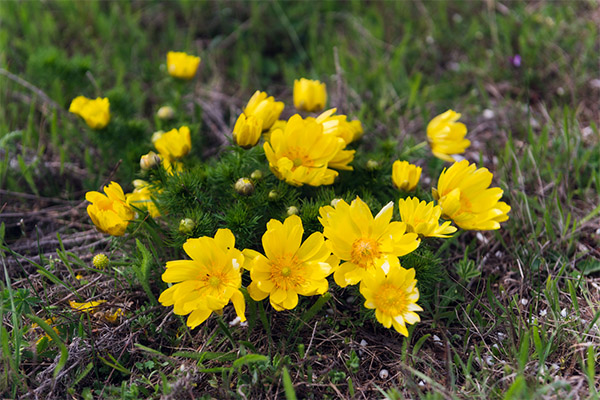
Do not use Adonis in its pure form to people with hypertension and other heart diseases, which are accompanied by palpitations. In these pathologies, you can drink the plant as part of other herbal gatherings.
Healthy people are still advisable to consult a doctor regarding the use of adonis and the acceptable dosage.
The substances in adonis can cause adverse effects in the body even in a slight overdose. Symptoms of poisoning include seizures, nausea, vomiting, and increased drowsiness. If any of these symptoms occur, you should take activated charcoal at the rate of 1 tablet per 10 kg of weight and try to do gastric lavage. Some advise taking vomiting medication, but it is not recommended. After taking charcoal, you should call an ambulance.
Some sources say that coffee and wine can weaken the negative effects of the herb on the body.
Adonis will be a good cure for many diseases, if the dosage is strictly observed. It often depends on the individual characteristics of the body, so it is prescribed by the doctor. By planting Adonis on your plot, you can provide yourself with a medicinal remedy.
«Important: All information on the site is provided solely for introductory purposes. Before applying any recommendations, consult with a specialized specialist before using any of the recommendations. Neither the editors nor the authors shall be liable for any possible harm caused by materials."

